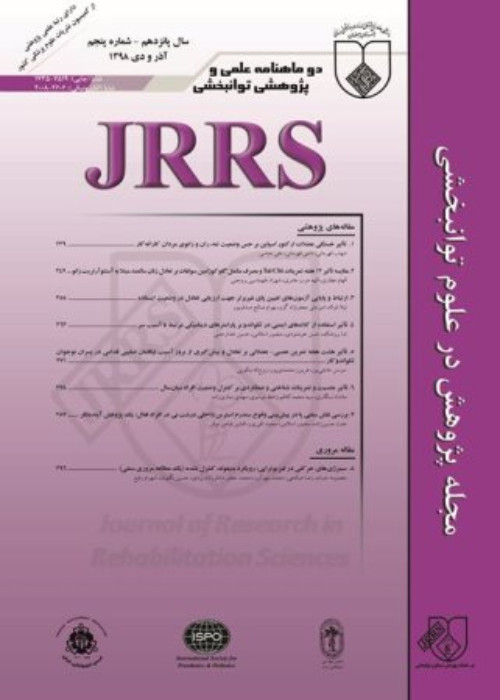The Effect of Eight Weeks of Training on Head and Neck Stability in Tsuki Punch after Neck Muscle Fatigue
Introduction:
Muscular fatigue can interfere with the proper functioning of postural stability strategies, hence decreasing stability and increasing the risk of injuries in athletes. The aim of this study is to examine the effect of training on head and neck stability against Tsuki punch during the neck muscle fatigue in male athletes.
24 professional male karate athletes were selected and randomly divided into the experimental [n = 12, age: 20.92 ± 2.62 (y), weight: 71.00 ± 11.68 (kg), height: 1.77 ± 0.05 (m)] and control [n = 12, age: 22.08 ± 2.21 (y), weight: 72.15 ± 13.24 (kg), height: 1.78 ± 0.06 (m)] groups. The experimental group performed a training program for eight weeks, three times per week. Moreover, the angular displacement and acceleration of head and neck in Tsuki punch during muscular fatigue were measured by motion analysis system before and after the training protocol. Data were analyzed by paired t-test, independent t-test, and analysis of covariance (ANCOVA) at the significance level of 0.05.
There was a significant difference in angular displacement (Experimental: 2.95 ± 1.85, Control: 4.15 ± 2.15) and acceleration before (Experimental: 16.29 ± 9.62, Control: 70.17 ± 12.23) and after (Experimental: 24.69 ± 15.98, Control: 70.86 ± 14.92) hitting the punching bag.
The outcome of this study showed that proprioception training can improve head and neck postural stability during muscular fatigue against external perturbation in Karate athletes. Therefore, these exercises can be used to reduce the effect of external perturbation on the head and neck of these athletes.


